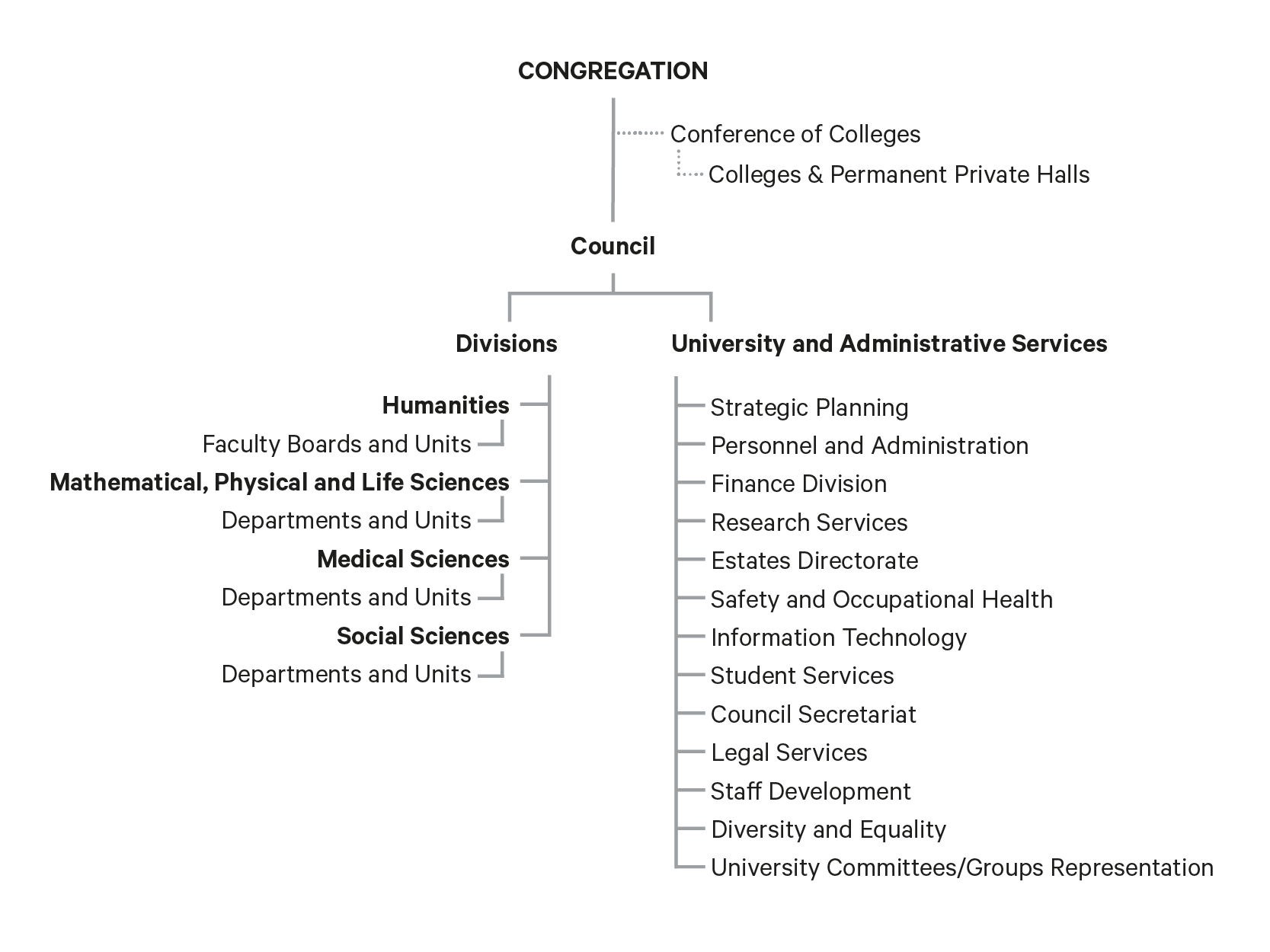

CONGRATULATIONS AND THANK YOU FOR BECOMING A COURSE REP!
Across the University of Oxford academic reps may be referred as the ‘Course Academic Rep’, the ‘Year Rep’, ‘Class Rep’, ‘Student Rep’ ‘Specialism rep’ or just ‘Course Rep’. The latter term is probably the most ubiquitous, and can be used to refer to representatives of departments as well as courses.
Being a course rep means you become the spokesperson for your course.
You will seek out the views of students and relay these to the academic sta members in your department/faculty – however how you choose to do this is up to you. Methods range from in-person feedback to individuals or groups, to email surveys, to consideration of the NSS results (breakdowns of which are available from Oxford SU). Most importantly, you must relay these views to those who can make a di erence – be that to a course director in a G/JCC or to a Divisional representative.
As you start your role you’ll learn, if you haven’t already, that Oxford has some utterly ba ling structures. This handbook is just the start of how Oxford SU will help you navigate the University and make things happen, but it is far from the end – we are here all year to help and support you in making change happen in your own departments.
So congratulations again for getting involved: over this year, you’re going to have the chance to do amazing things, to develop your own skills enormously, and achieve so much for your fellow students.
Enjoy it!
Course Rep Role Description
What are Course Reps?
Course Reps are a key link between the students within your class, cohort or year group to the academic staff within your department. They seek out students’ views and represent you at meetings, working in partnership with staff to improve your course, campaign for change, and resolve any course-related issues which may arise. Course Reps work closely with the Divisional Board Reps, Oxford SU, and its elected officers (both full and part-time) to improve students’ experience across the university.
What do I have to do?
Each department and course has their own way of listening to the views of students but most have what’s called a JCC (Joint Consultative Committee) or a GJCC (Graduate Joint Consultative Committee). Some departments may have a SSF (Staff Student Forum), or an Academic Forum/Assembly.
Your role requires you to do:
Regularly seek out the views and opinions of the students you represent on all matters concerning their student experience.
Bring course-level issues and concerns raised by the students you represent to meetings of the JCC/GJCC or equivalent.
Attend and contribute, as far as possible, to any other meetings with staff to which they are invited.
Ensure that you are prepared to present your own views and the views of those whom you represent effectively to meetings, having read all the necessary papers.
Provide feedback to the students they represent on the outcomes of meetings and liaise with other course representatives to form a picture of the views of the department student body.
Attend training for course representatives provided by Oxford SU.
There should be at least one meeting within the first two terms. As a rep you will be given the time and location of the meeting by either the lead Academic or by a Department administrator.
What happens in these meetings?
It’s your chance to feed back any thoughts, points, concerns or issues your peers have to the academic staff. The agenda is normally kept quite open and you don’t have to always find the negatives – feedback can also be about positive changes to the student experience.
How will Oxford SU support you?
Oxford SU are putting a big emphasis on supporting course reps. Throughout Michaelmas term we’ll be putting on specific training for course reps for each division. We’re offering a range of training slots from afternoon and evening sessions over a range of weeks to allow you to pick training that fits around your schedule. We will also offer training which is specific to departments, to ensure that you can do the best job you can.
Oxford SU will also be contacting you to find out how things are on your course throughout the year with a range of consultations, questions and advice.
How will your Department/Faculty support you?
They will identify a lead administrative contact who is responsible for the effective administration of the student representation system.
They will identify a lead academic or academics responsible for the running of the JCC/GJCC. They will be the first point of contact with course representatives regarding any issues or concerns they wish to raise through the JCC/GJCC or other mechanisms as appropriate.
Your department/faculty should ensure that the meetings are being held at a time and place that works well for the reps.
There should be a good mix of students and academics. Remember that it’s a two-way conversation.
Meetings: Your department/faculty should be in contact with you to provide you with the dates, times and locations of any upcoming meeting. If you can’t attend, make sure you send your apologies and, if possible, any notes.
Agenda and Papers: Most meetings will have an agenda and possibly papers. In the weeks leading up to the meeting, think about you’d like to discuss. The agenda and papers should be sent out at least a week before the meeting.
Minutes: Some departments will keep a record of the meeting as a set of ‘minutes’. This is normally an over-view of what was talked about during the meeting and any actions and decisions that were made.
Other Committees
Further to your role as a Course Rep, your department may occasionally ask you to attend other University meetings or committees. We recognize that students at Oxford are extremely busy with their academic work and you should not feel obligated to take on additional work which might prove detrimental to your studies.
CLiPS Meetings: Committee on Library Provision and Strategy
Department/Faculty Board: The Committee that ultimately runs each department/faculty.
Department Education Committee: The committee reporting to the Department Board with responsibility for education matters.
Undergraduate/Postgraduate Studies Committee: Sub-committees below Education Committee with responsibility for either Undergraduate or Postgraduate matters.
1-2-1s with HoD: Reps should aim to have termly meetings with the Head of Department or a senior department officer.
Use this flow to structure your activities throughout your year
1. Listening and gathering information
Be it through surveys, social media or simple after class chats, gathering students’ opinions is the bread and butter of being a course rep.

2. Issue selection
You must discern which issues ought to be taken to a committee or member of staff, and which issues you should point the student towards the Student Advice.

3. Building a case
How many students has this affected? Is this a recurring problem with your course? Is there a precedent for this problem arising and being solved elsewhere? What are the students’ preferred improvements?

4. Feedback to peers
Often issues take time to be resolved, or may only be resolvable for the next group of students. Sometimes there is simply a good reason as to why something can’t be done. This feedback and the corresponding explanation can be a good way of making students feel like they are being listened to and that there is an e ective process in place – making them more likely to bring their issues to you in the future!

5. Feedback to the University
Meetings should produce action plans to accompany the minutes, where you can clearly see what has and hasn’t been done, and who can be held accountable. You can also consult with students – remember, good feedback is also worth reporting!

Repeat!
| |
Oxford SU: Student Advice |
Senior/ Organising Tutor |
Proctors |
Divisional Representatives |
Staff-Student Liaison Committee (JCC, GJCC, SSLC etc.) |
Oxford SU |
| For issues affecting individuals or groups? |
 |
  |
 |
 |
 |
  |
| What are they? |
Free, impartial advice offered by professional advisers in Oxford SU |
The tutors who are responsible for organising students’ tutorials |
The proctors deal with student discipline, ensuring the proper conduct of examinations and complaints. |
Students who sit on one of the four University divisional boards having been appointed by Oxford SU |
A committee for students to give feedback on their course to staff |
The representative body for all matriculated students |
| Examples of where they can help |
Referring a student with welfare issues, what to do if you’ve failed an exam |
A group of students have too many tutorials, tutorials clash |
Mitigating circumstances for adjustment of finals exams |
JCC advice, lecture capture (the recording of lectures) |
Lecture capture (the recording of lectures), quality/ quantity of lectures, curriculum issues |
Anything and everything; if we can’t help, we probably know who can |
| How can you get in touch? |
You can either email (advice@oxfordsu.ox.ac.uk) or look online for one of the weekly drop-in sessions |
Check your college website or course handbook |
You may wish to speak to Student Advice or your college office |
Please see below |
Course reps, committee secretary |
Get in touch with the Educations Policy Coordinator at: oliver.holdsworth@oxfordsu.ox.ac.uk |
How do I get opinions from other students?
Here are a few suggestions from us:
| What |
Examples... |
| Speaking to students face-to-face |
After a lecture you may want to spend 5 minutes collecting thoughts or notes from fellow students, or just making yourself known as the person to speak to if they have academic concerns. |
| Working with academic reps from your JCR/MCR |
Your JCR/MCR may have an academic rep. They might be a good person to speak to about college based academic issues. |
| Facebook or social media group |
Some courses may have a social media Facebook group, which may be useful to gather comments or for consultation. If not, you could consider creating one. |
| Email to your peers |
Asking your department for an email list of your peers is a good way of communicating en mass. If your department won’t give you the list, they can send an email on your behalf. |
| Online survey |
Oxford SU will be able to support you in running surveys online for your students via SurveyMonkey or Typeform. |
| National Student Survey Data (historic) |
All finalist undergraduate students are invited to complete the National Student Survey. You’ll be able to find out data on your course about Teaching, Assessment, Organisational and Management, and Library facilities. Note: no data available for 17/18 |
| Student Barometer |
The Student Barometer offers a huge wealth of data about both undergraduate and graduate courses. The data covers open days, arrival, education standards and experiences of various University departments. |
| Academic Feedback Sessions (AFS) |
Some JCRs will run Academic Feedback Sessions to allow students to voice their thoughts about their academic experience. This may be an opportunity to get additional information from fellow students. |
Divisional Reps
Oxford SU has 8 Divisional Reps (one Undergraduate and one Postgraduate per Division), who represent students at Divisional level. They sit on the Divisional Board and relay the views of students to the academics. These students also are members of Student Council. These elected reps are key links for you as a Course Rep and you get in contact with them via (ug – under graduate, pg - post graduate):
Structure of the Central University
